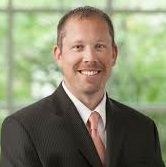Article
More than Half of Physicians Feel Burned Out: ACP Offers Remedies
Author(s):
Medicine can be exhausting.Tips on avoiding burnout.

Physician burnout is a continuing problem, a panel of American College of Physicians experts agreed at a session at the ACP’s Internal Medicine Meeting in San Diego, California.
The organization has published a position paper calling for less mandatory paperwork for doctors and 3 panelists who spoke said such clerical work has become a major intrusion and aggravation for doctors. Nor is it the only factor in burnout.
Moderator Micah Beachy, DO, (photo) Tammy Lin, MD, MPH, and Richard Wardrop, MD, PhD, discussed the “barriers to work-life integration.”
Beachy advised physicians to ask themselves a simple question to assess their own level of discontent and frustration:
“Are you more callous toward patients than when you started practice?”, he asked.
Surveys have found that nationally about 55% of practicing physicians have symptoms of disenchantment with the filed, and among medical residents, that number is as high as 75%.
“Burnout is a real thing and the drivers are exhaustion, cynicism, and feelings of inefficacy,” he said, while the signs of engagement in medical practice are “Feelings of vigor, dedication, and absorption.” While much has been written about finding a work-life balance, with equal time for both, that may not be possible in medicine, he said.
“Get rid of that phrase, it’s not achievable—work-life integration is more achievable,” he said.
Instead, he advised, physicians should try to accept that at times family will be a priority but other times there will be career challenges and opportunities that will mean cutting back on family time.
Lin’s tips involved both introspection to decide what makes someone feel happy.
For Lin, she said, it was the realization of just how important it was to her to live in a nice climate like San Diego, where she has set up a practice and health-related business.
She left the frigid winters of Michigan, moved to California and “I’ve never been happier,” she said.
Other tips included setting up a “reminder cue” for transitioning between work and life daily.
As an example, she said, she uses the clicking of her garage door opener device to signal to herself that the work day is over and it’s time to switch gears.
Another piece of advice that has worked for her in dealing with the inevitable frictions in a relationship with a loved one is to set a daily three-minute period in which one person gets to say anything on his or her mind while the other listens without interrupting. Then they switch.
Panelists agreed that physical wellness is crucial including healthy eating—both in food choices and in how meals are eaten, i.e. not eating over the laptop during work but sitting down with a colleague. Laptop, tablet, and phone use can also be hard on healthy ergonomics, as the human head weighs about 12 lbs when a person is standing up straight, but exerts a force of 60 lbs on the neck when someone is hunched over a device with a screen.
“Hold the screen up to eye level,” Lin said, or in the case of a laptop use something to bring it up to that level.
On the more difficult question of workplace stress in an environment where physicians may increasingly feel micro-managed it helps to be ready with a personal “value statement” when a consultant or other new organizational figure suddenly demands to know what a doctor’s worth may be as far as the institution is concerned.
“Today it’s not ‘show me the money,’ but ‘show me your value’,’’ said Beachy.
“Craft and update a value statement—how do you align with the organization’s mission,” he advised, and with that goes “understanding the values of the institution.”
Once a physician is not on the defensive but prepared to be clear about just what he or she offers, negotiation is easier, Lin said.
“That can be a tough process if you’ don’t like conflict,” but it is a necessary skill, she said.
That includes knowing when to say no.
“Ask yourself “Do I feel free to say no’ and what are my fears for what will happen if I do and ‘Can I live with that’,” Lin said. “Have confidence in your values.”





